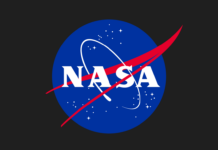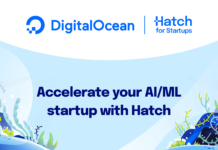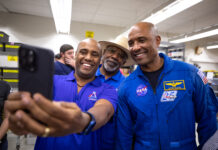Unveiling the Impact of the OCEANOS Project: Empowering Students in Marine Science
Introduction
The OCEANOS project is making waves in the educational landscape of Puerto Rico by providing unique opportunities for students to immerse themselves in marine science. María Fernanda Barbarena-Arias, an associate professor of biology at the American University of Puerto Rico, Metropolitan Campus, plays a pivotal role as a co-principal investigator (co-PI) in this initiative. Her involvement extends beyond administrative duties, as she actively mentors and instructs students during their internships. This article explores the profound impact of the OCEANOS project on students and the broader implications for marine science education in Puerto Rico.
Bridging the Gap in Marine Science Education
In Puerto Rico, marine science education has traditionally been the domain of public universities. However, the OCEANOS project is breaking this mold by engaging students from private universities who may not have had access to such opportunities. This initiative allows students to delve into ocean science, coastal, and marine natural resources, areas that are often overlooked in conventional educational settings. By providing a platform for these students, OCEANOS is democratizing access to marine science education.
María Fernanda Barbarena-Arias emphasizes the significance of this initiative, stating, "It makes a difference for the students because it gives them the opportunity to learn and become familiar with ocean science." This exposure is invaluable, as it not only broadens students’ academic horizons but also opens doors to alternative career paths in natural sciences.
Transformative Experiences for Students
One of the most remarkable aspects of the OCEANOS project is the personal growth and transformation witnessed in students. Initially, many students approach the program with apprehension, particularly when it comes to activities like swimming and data collection. However, as they become more engaged with their projects, their confidence grows exponentially.
"Students gain confidence in the water," Barbarena-Arias observes. "Their first time, they are apprehensive, but as time passes and they engage more in their projects, they become much more familiar with swimming." This newfound confidence extends beyond aquatic activities, as students also become more proficient in their research projects. By the third day, they are well-versed in data collection, requiring minimal guidance. This empowerment is a testament to the efficacy of hands-on, experiential learning.
Shifting Perceptions of Natural Sciences
In Puerto Rico, natural sciences have often been perceived as a stepping stone to medical or health-related disciplines. However, the OCEANOS project is challenging this stereotype by highlighting the diverse career opportunities available within the field of marine science. Barbarena-Arias hopes that students who participate in the program will become advocates for natural sciences, spreading the word that there are viable and rewarding career paths beyond the traditional ones.
She envisions students using their newfound knowledge and experiences to raise awareness about the importance of protecting Puerto Rico’s natural resources. "We live on a vulnerable island," she emphasizes, "and we need to take action to become conscious and to protect our natural resources." By instilling this sense of responsibility and urgency, the OCEANOS project is nurturing a generation of environmentally conscious individuals who can drive positive change.
A Personal Journey in Science Education
María Fernanda Barbarena-Arias’s journey to becoming a prominent figure in marine science education is as inspiring as the OCEANOS project itself. Originally from Colombia, she pursued a bachelor’s degree in biology with a minor in entomology, driven by an initial interest in agriculture and pest control. However, a course in insect ecology ignited her passion for ecology, prompting her to further her studies in tropical biology at the University of Puerto Rico.
After completing her master’s degree, Barbarena-Arias secured a permanent faculty position at a private university. It was during this time that she realized traditional classroom teaching methods were not conducive to effective science education. This revelation led her to seek out non-traditional settings and mentorship opportunities for students. Her collaboration with the University of Maryland strengthened her commitment to providing experiential learning experiences, eventually leading her to the OCEANOS project.
The Broader Implications of OCEANOS
The OCEANOS project is not only transforming the lives of individual students but also contributing to a broader shift in marine science education. By bridging the gap between public and private educational institutions, it is fostering a more inclusive and diverse community of aspiring marine scientists. This inclusivity is crucial, as it ensures that a wider range of perspectives and ideas are brought to the table, enriching the field of marine science as a whole.
Furthermore, the project’s emphasis on experiential learning aligns with global trends in education that prioritize practical, hands-on experiences over rote memorization. This approach not only enhances students’ understanding of complex scientific concepts but also equips them with the skills needed to tackle real-world challenges.
Conclusion
The OCEANOS project stands as a beacon of innovation and inclusivity in marine science education. Through the dedication of educators like María Fernanda Barbarena-Arias, it is empowering students to explore new horizons, challenge traditional career paths, and become advocates for the environment. As these students emerge as leaders in their fields, they carry with them the lessons learned from their time with OCEANOS, ensuring that the project’s impact resonates far beyond the shores of Puerto Rico.
For more information on the OCEANOS project and its initiatives, you can visit the official website.
For more Information, Refer to this article.






























